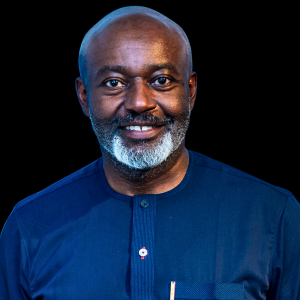Molweni,
It gives me great pleasure to be here today, to be part of discussions on Ulwaluko (Customary Male Initiation), a sacred rite of passage into manhood.
This rite of passage embodies the ideals, values and aspirations of both the individual and the community, where young boys are to transition, in safety and with dignity, into responsible manhood under the guidance of experienced male elders and nurturing mothers (many of whom are gathered here today)!
The United Nations in South Africa accompanies and supports efforts to ensure this rite of passage is safe for our boys.
We do so by collaboratively finding practical, achievable and implementable measures to deal with challenges confronting Customary Male Initiation across the country and especially in this province.
Only recently, in a report to the General Assembly, the United Nations Secretary General pointed to the central role of culture as a driver and enabler of sustainable development – advancing norms and practices that ensure the dignity, safeguarding, and wellbeing of people and planet.
Following the mortality rates of the 2022 winter and summer initiation seasons in the Eastern Cape, the UN family rallied to engage partners: traditional leaders, government at all levels and civil society on mechanisms and measures to address the prevailing challenges and help prevent loss of during a practice that is instead meant to lead to deeper meaning and appreciation of life.
Notwithstanding the various interventions undertaken by the Eastern Cape government and stakeholders, including community engagement, the closure of illegal initiation schools, arrests and sentencing of offenders, the death of our young boys remains a huge concern to us all.
The United Nations is encouraged by the convening of this timely and important Summit seeking and cementing solutions to stop the death of initiates and restore the respect and dignity attached to this age-old tradition for the benefit of generations to come.
Therefore, today’s Summit must take into account the great need to adapt when confronting the challenges of the 21st century. We can achieve this by ensuring appropriate, acceptable customs and practices are reinforced and that an acceptable level of accountability that sustained the practice over many years is restored.
These include:
• Developing criteria to screen principals, traditional surgeons, caregivers and traditional health practitioners;
• Defining and digitizing minimum requirements needed for the registration of traditional surgeons;
• Producing educational and community engagement material in local languages for the purposes of reaching out to all role-players in initiation on the rights, responsibilities, roles and functions of such role-players and the rights of initiates; and
• Co-creating acceptable standards relating to discipline at initiation schools.
Ulwaluko must intentionally play an important role in contributing to the construction of positive masculinity in the transition from boyhood to manhood.
Positive masculinity is the promotion of healthy and constructive behaviors, attitudes, and values associated with being a man, instilling and reinforcing qualities such as responsibility, respect, courage, and leadership in young boys as they transition into manhood. The responsibility lies with us all to become champions of Positive Masculinity.
Through the guidance of experienced male mentors, we must focus our efforts on ensuring initiates understand their roles and responsibilities within their communities; understand the importance of respecting others, including women and girls as well as elders; other vulnerable groups in society and their peers. Initiates must be encouraged to develop self-discipline, emotional intelligence, and a sense of accountability for their actions.
While some customary male initiation practices may promote positive values, it is crucial to critically examine and challenge any harmful or oppressive aspects that may be present. Striking a balance between preserving cultural traditions and promoting gender equality is an ongoing conversation that requires sensitivity and open dialogue. All role players must take steps to ensure that safe and culturally appropriate customs and practices are reinforced and that an acceptable level of accountability that sustained the practice over many years is restored. The role of traditional leaders becomes central in protecting and safeguarding the customs and traditions at all times.
The leadership and full involvement of Traditional Leaders is very commendable. The slogan “Mabaye bephila, babuye bephila”; (loosely translated: “They must go in healthy and come back home healthy”) resonates with our United Nations vision to reduce Customary Male Initiation deaths to zero in the Eastern Cape province. Young people have the right to life, and every parent has the right to know that their child is safe and is protected from risks.
This is why our collective interventions – authorities, partners, traditional custodians, families - must seek to strengthen support on the broad areas of policy implementation and knowledge generation; strengthening standards, guidance, enforcement; support to materials provisions, convening and coordinating stakeholders; supporting community sensitization and mobilisation and mapping and localisation of legal and illegal schools. It is also important to put in place real-time monitoring systems with brisk responses to problems and challenges facing traditional initiation in the province.
Collectively, all key stakeholders from traditional authorities, civil society, all spheres of government must be actively involved, including communities and parents in ensuring zero deaths as we look forward to the 2023 summer initiation season. Working together, we must ensure that “Baya bephila, Babuya bephila.”
Thank you! Enkosi



